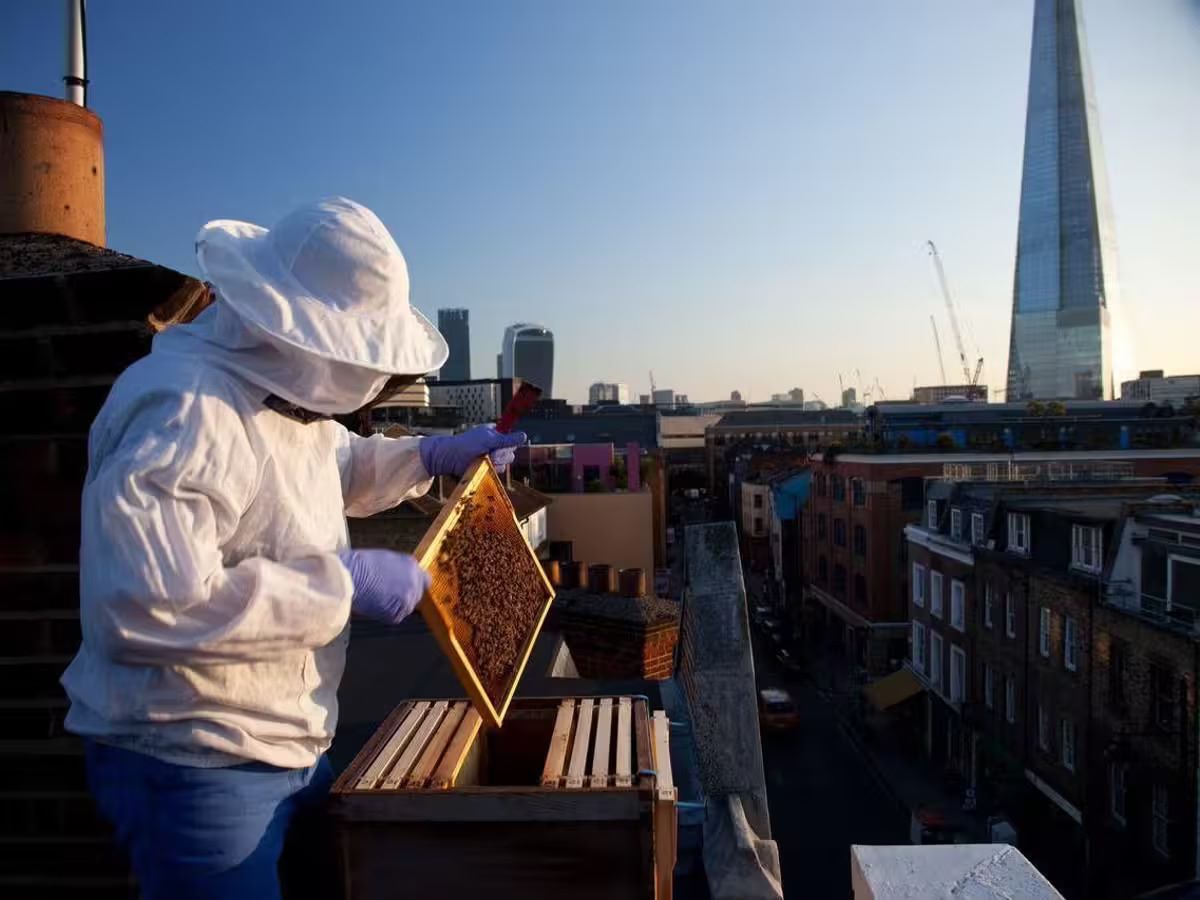Hidden Rooftop Bee Sanctuaries In London

Have you ever wondered where bees buzz in a bustling city like London? Surprisingly, many of them thrive in hidden rooftop bee sanctuaries scattered across the city. These urban oases provide a safe haven for bees, helping to boost their dwindling populations. From the top of luxury hotels to office buildings, these sanctuaries are not just about honey production. They play a crucial role in pollination, supporting local flora and contributing to the city's green spaces. Next time you stroll through London, remember that high above, bees are hard at work, making the city a greener, more vibrant place.
Hidden Rooftop Bee Sanctuaries in London
London, a bustling metropolis, hides many secrets above its skyline. Among these are rooftop bee sanctuaries, where bees thrive amidst the urban jungle. These sanctuaries not only support biodiversity but also produce some of the city's finest honey. Let's explore some of these hidden gems.
1. The Shard
High above the city, The Shard hosts a thriving bee sanctuary. Managed by experienced beekeepers, this sanctuary provides a safe haven for bees amidst the hustle and bustle below. Visitors can learn about beekeeping and even taste honey produced right on the rooftop.
2. Fortnum & Mason
Fortnum & Mason, the iconic department store, has a secret on its roof – a bee sanctuary. This sanctuary supports several hives, producing honey sold in the store. The bees here enjoy a panoramic view of Piccadilly while contributing to the local ecosystem.
3. Ham Yard Hotel
Nestled in the heart of Soho, Ham Yard Hotel's rooftop garden includes a bee sanctuary. The bees here pollinate the hotel's lush garden, ensuring a vibrant array of flowers and plants. Guests can enjoy the fruits of the bees' labor in the form of fresh, local honey.
4. Tate Modern
The Tate Modern, known for its contemporary art, also supports a rooftop bee sanctuary. This sanctuary not only helps the bees but also educates visitors about the importance of pollinators. The honey produced here is often used in the museum's café, adding a sweet touch to visitors' experiences.
5. St. Ermin's Hotel
St. Ermin's Hotel, located near St. James's Park, boasts a rooftop bee sanctuary that has become a key part of the hotel's green initiatives. The bees here thrive on the diverse flora of the nearby park, producing honey that guests can sample during their stay.
6. The London Stock Exchange
Even the financial heart of London supports bees. The London Stock Exchange's rooftop sanctuary provides a peaceful retreat for bees amidst the city's financial district. This sanctuary highlights the importance of sustainability in all sectors, including finance.
7. The Brunel Museum
The Brunel Museum, dedicated to the engineering feats of Isambard Kingdom Brunel, also hosts a rooftop bee sanctuary. This sanctuary not only supports local bee populations but also ties into the museum's theme of innovation and engineering, showcasing how urban spaces can be repurposed for nature.
8. The Waldorf Hilton
The Waldorf Hilton, a historic hotel in Covent Garden, has transformed its rooftop into a bee sanctuary. The bees here contribute to the hotel's sustainability efforts, and the honey they produce is used in the hotel's restaurant, offering guests a taste of local flavor.
9. The Royal Lancaster London
Overlooking Hyde Park, The Royal Lancaster London features a rooftop bee sanctuary that benefits from the park's diverse plant life. The bees here produce honey that is used in the hotel's culinary offerings, providing guests with a unique and local dining experience.
10. The Savoy
The Savoy, one of London's most famous hotels, also supports a rooftop bee sanctuary. The bees here thrive in the hotel's lush rooftop garden, producing honey that is used in the hotel's restaurants and bars. This sanctuary underscores The Savoy's commitment to sustainability and local sourcing.
Discovering London's Rooftop Bee Sanctuaries
London's rooftop bee sanctuaries offer a unique glimpse into urban beekeeping. These hidden gems not only support the environment but also provide a fascinating experience for visitors. From the rooftops of hotels to office buildings, these sanctuaries are buzzing with life.
Exploring these spots, you’ll see how urban beekeeping helps sustain local ecosystems. The bees pollinate plants, contributing to the city's green spaces. Plus, the honey produced is often sold locally, adding a sweet touch to the community.
Visiting these sanctuaries can be both educational and enjoyable. You’ll learn about the importance of bees, their role in nature, and how urban areas can support wildlife. Next time you're in London, consider checking out one of these rooftop havens. It’s a small adventure with a big impact on the environment.

